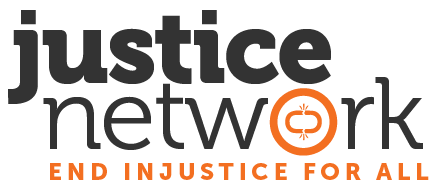Slavery, A Poem
EXTRACT 1
I see, by more than Fancy’s mirrow shewn,
The burning village, and the blazing town:
See the dire victim torn from social life,
The shrieking babe, the agonizing wife!
She, wretch forlorn! is dragg’d by hostile hands,
To distant tyrants sold, in distant lands!
Transmitted miseries, and successive chains,
The sole sad heritage her child obtains!
Ev’n this last wretched boon their foes deny,
To weep together, or together die.
By felon hands, by one relentless stroke,
See the fond links of feeling nature broke!
The fibres twisting round a parent’s heart,
Torn from their grasp, and bleeding as they part.
Hold, murderers, hold! not aggravate distress;
Respect the passions you yourselves possess;
EXTRACT 2
Thy followers only have effac’d the shame
Inscrib’d by SLAVERY on the Christian name.
Shall Britain, where the soul of freedom reigns,
Forge chains for others she herself disdains?
Forbid it, Heaven! O let the nations know
The liberty she loves she will bestow;
Not to herself the glorious gift confin’d,
She spreads the blessing wide as humankind;
And, scorning narrow views of time and place,
Bids all be free in earth’s extended space.
What page of human annals can record
A deed so bright as human rights restor’d?
O may that god-like deed, that shining page,
Redeem OUR fame, and consecrate OUR age!
And see, the cherub Mercy from above,
Descending softly, quits the sphere of love!
This poem was written in 1778 by abolitionist Hannah More to be used by William Wilberfoce in his campaign to bring slavery to an end through his work in Parliament. The two of them were friends for forty years and died two months apart from one another, directly after their fight for the abolition of slavery in England came to fruition in 1833.
 Hannah More was born in 1745 to a school teaching father and her mother as the fourth of five daughters. The entire family was dedicated to education and had always been drawn to opening up schools for those who were of poorer status; deemed as unworthy to being educated, as the richer society feared that they’d use their education against them to bring upheaval or revolution. The More family never felt that way and fought hard to ensure the importance of educating all people no matter their status or gender.
Hannah More was born in 1745 to a school teaching father and her mother as the fourth of five daughters. The entire family was dedicated to education and had always been drawn to opening up schools for those who were of poorer status; deemed as unworthy to being educated, as the richer society feared that they’d use their education against them to bring upheaval or revolution. The More family never felt that way and fought hard to ensure the importance of educating all people no matter their status or gender.
Hannah had become a member of the literary women’s group of writers called the Bluestockings where she had become a well known playwright and poet. She was thrilled with the success she had in this aspect for a long time, until her friend David Garrick, a well known actor and playwright, died in 1779.
 In the late 1770s, Hannah made a switch of interest. She became much more emotional and saw the life she once led as vanity. It is here where she started to learn about the problems within the slave trade and found her passion to use her writing and voice to bring an end to the tortures of men from the Africas. It was at this time that she learned of the Clapham Sect, a group of people who lived near Clapham, England, who were highly influenced in their faith of God and in the freedoms all peoples should have. This is where she met William Wilberforce and his wife Barbara. They became instant friends.
In the late 1770s, Hannah made a switch of interest. She became much more emotional and saw the life she once led as vanity. It is here where she started to learn about the problems within the slave trade and found her passion to use her writing and voice to bring an end to the tortures of men from the Africas. It was at this time that she learned of the Clapham Sect, a group of people who lived near Clapham, England, who were highly influenced in their faith of God and in the freedoms all peoples should have. This is where she met William Wilberforce and his wife Barbara. They became instant friends.
Through Wilberforce’s encouragement, Hannah set up a Sunday School for poor children to have the ability to learn about God. It was then that she returned to her roots of educating the poor and built schools for them with some of her surviving sisters, all whom she outlived.
 Miss More is well known for pushing out the abolitionist movement through her writings such as The Sorrows of Yamba; giving people a perspective they had not pondered before.
Miss More is well known for pushing out the abolitionist movement through her writings such as The Sorrows of Yamba; giving people a perspective they had not pondered before.
She was strongly opinionated and not easily moved by pressures and threats and was good at pushing back when her ideas were looked down upon and opposed. She was a fierce woman of deep convictions in a time when educated women were still being frowned upon, let alone ones with a will to not give up speaking up for the oppressed.
This month we are featuring a book about Hannah More’s life called Fierce Convictions: The Extraordinary Life of Hannah More: Poet, Reformer, Abolitionist.

Congratulations! I have nominated you for the Liebster Award!!!
Read more details here: https://blindinjusticeblog.com/2018/06/15/another-liebster-award/